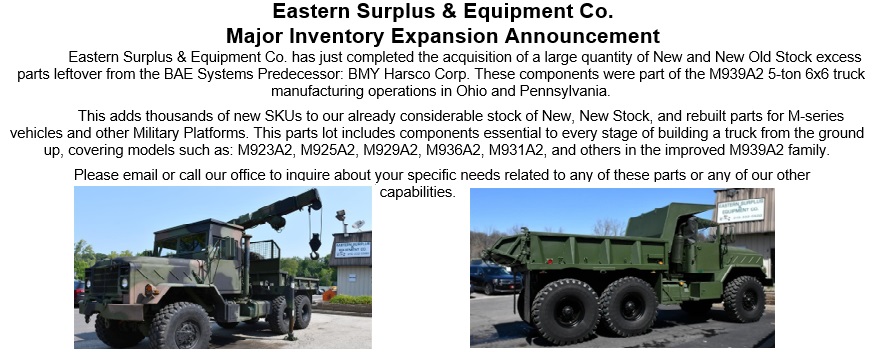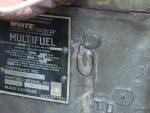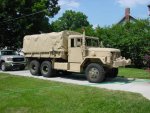Block repairs
Chem John,
Yes I have experiance with all the methods that have been discussed.
The unbreakable law of business (And Automotive Repair) says you have three options: "Fix it good" , "Fix it cheap" or Fix it fast" Unfortunatly you can only pick two of the three. If you try the "Fast and Cheap" it will not be good. Good and fast will not be cheap and finally "good and cheap" can't be done fast.
So, here is what I (as a professional large engine and machinery repair advisor) would recommend.
First, since the truck is not required for daily family transportation, take some time to investigate the options and research a repair plan.
1) Forget the "stop leak" option, It is fast and cheap but as others have said "not good for the other engine parts. It is an option for small automotive engines, in an emergency in the middle of now where as a last resort to get you home (or finish the job) and then get another engine fix.
2) Don't use the Non Metalic "Smear it on, goop it up fix". Products like JB weld in the right applications can and do work very well. This is not one of them. Again fast and cheap but not good. You can't get it clean enough and you will make it worse when you have to remove it to try something else.
3a) Welding your crack "in place" (in the truck) with the engine assemblied is not a good option. The first rule of repair welding is to keep the filler material as close to the base metal as possible. Again there are some excellent speciallty filler materials but they work best in dry, cleaned, prepared and preheated industrial machinery repairs. There is no way to clean and properly preheat that wet vertical engine block in the truck.
3b) Welding a very rare "last one on the planet" block casting to save it could be tempting but the engine must be disassembled, a brick block oven built, big enough to enclose it. Build a fire and preheat the whole block to about 1100 F before welding (about two days heating), weld it, then cover the whole thing with dry sand and let it cool for 3 or 4 days. Not cheap and not fast. Good
4) Swap engines. This model engine is common. To fix the cracked engine
will require engine removal from the truck. So R &I is a given cost either way. If you can take your time, find a deal (not "fast" but good and cheap) that may be a viable option.
5) Replace the cylinder block only. Lots of labor cost. Not fast and probably not cheap but a "Good" repair. Not an option I would consider. Save it for spare parts.
6) Pinning and peening. This is a viable method. It is used in large machinery and has been used for many years. Not criticle to have the block chemicly clean. Pinning cracked cylinder heads was a very common repair on large engine castings. It is not done as much on small automotive jobs and so not as well understood because a new part is cheaper and more available than the skilled labor to repair pin it. Recent improvements in the pin kit items make them even better than years ago. It is "cheap and it is good" but it is not a "Fast" fix. With fender and covers removed you could attempt it in the chassis, I would not. Take the engine out, remove the turbo and piping, lay the engine over so you can work "down hand".
I would attack it this way. Park the truck. Read up on metal stiching and price out the kits. Go to a junk yard and get a junk engine block, hit it with a hammer so you have a project to practice on. Learn to install the pins. See if you like it. If you really want to try special welding rods, flip you practice block over and try heatin and weldin too. Practice and see what works and what you like.
Then remove the engine from your truck and make the repair that you are now skilled at - (pins and peening I hope). It was broken when you started, if you take your time and do a good job and the problem is solved. Reinstall the repaired engine into your truck. If not look for another engine. Remember, this is a hobby, try and fix it first and then if you have to, find a complete engine.
Fix it and then brag like **** to everyone here.
You can do it soldier!
Cat Man





